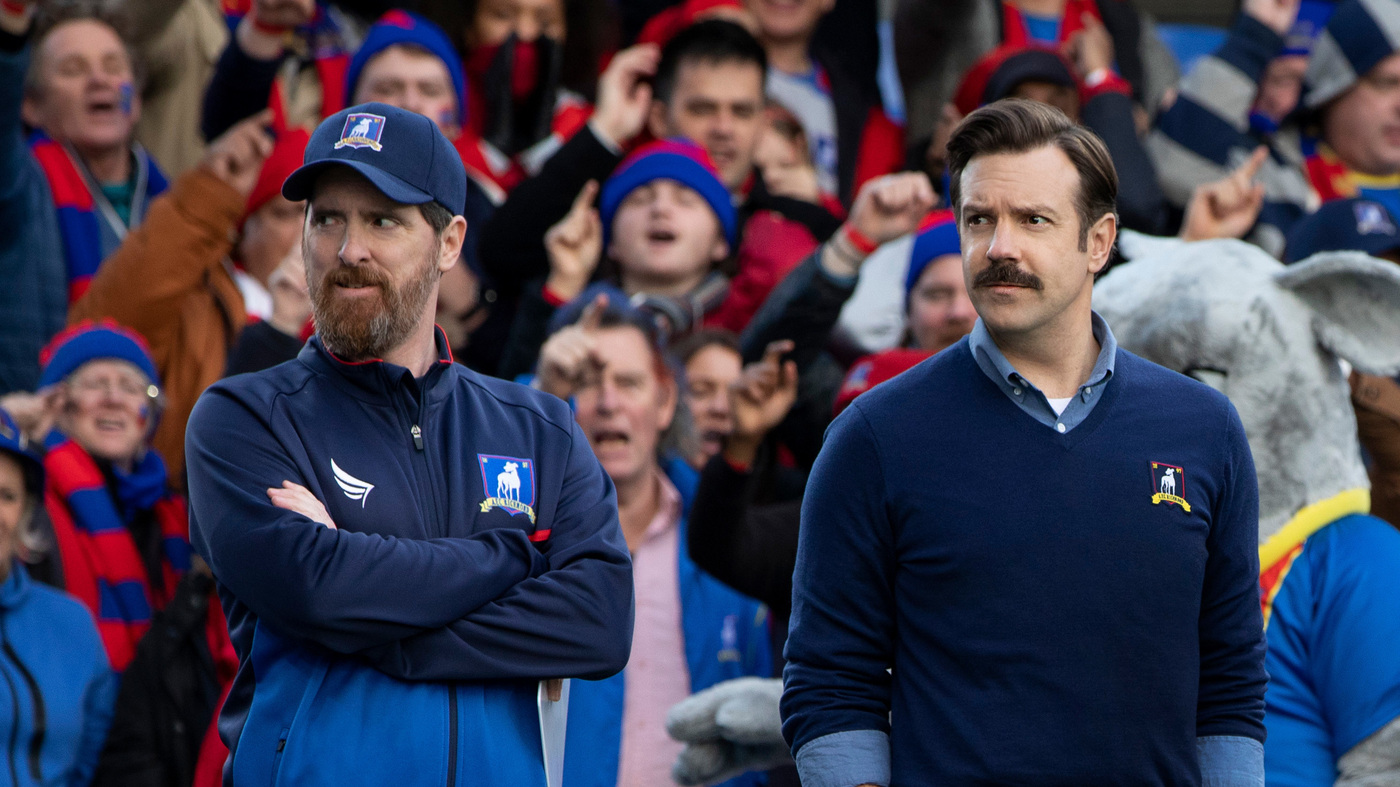Last May, The Guardian published an article on the rise of a kind of primetime television we haven’t seen before, a kind of television not driven by conflict like traditional TV, but one anchored by a levity of humor. It has come to be dubbed as “nicecore television,” that is, scripted television that aims to provide a charming touch of wit at the expense of pushing a show’s conflict forward. The article made some pretty valid points, but I believe nicecore television’s roots run deeper than the charm you seen on the screen. Shows such as Ted Lasso and Abbott Elementary tend to lean on these kneejerk humorous reactions as a crutch. But these aren’t just one-off jokes – these entire series are based off the need to rely on light-hearted humor in exchange for conflict driven episodic spaces.
But what does this mean for the future of serialized and episodic television and potentiality for series pick-ups? If these popular nicecore television shows aren’t driven by a central story engine, what does that signal to the longevity of other future series? In this day and age, incited by the pandemic, the business of TV has started shifting away from shows that have a consistent source of story energy in exchange for a more happy-go-lucky, wish-fulfilling TV series, which could very well be detrimental to the medium of scripted television. In light of next week’s Primetime Emmy Awards, we’d like to shed some light on these nicecore television shows and what they pose to the future of television writing.
The biggest example of nicecore television so far has been Ted Lasso, perhaps the first show in this new wave to sway away from a concentrated story engine. Apple’s first foray into TV signaled to viewers that the company was still finding its footing in the medium, but it was the height of the pandemic and the depths of quarantine that made Ted Lasso take off. It’s feel-good, un-American worldview provided the right feelings at the right time for viewers, as well as challenged the American viewer to watch a show about a world we weren’t accustomed to – international soccer – in a time where we desperately needed to go against our habits. It provided a rewarding light in a very dark time, pop-culture references we thought we’d forgotten, and sweet humor in the lead of Jason Sudeikis.
However, these attributes also contribute to the show’s flaws. Yes, the character of Ted Lasso is the lead. Yes, he provides a joke or pop-culture reference every sentence. And yes, his character is meant for us to feel happy. However, it is not his story. He is not the show’s protagonist. Interestingly enough, it’s Rebecca Welton’s (Hannah Waddingham), the team owner’s story. She is the one who’s put into conflict, she is the one putting the team at risk and instigating stakes. But what makes this conflict thin is the glue that keeps her in this situation. Why does she keep Lasso as manager? If she’s putting the team’s investors at risk and remains reluctant to Lasso’s optimism, why doesn’t she just get rid of Lasso? One hint: biscuits. But the show’s longevity is not reliant on this thin conflict. Merely, the through-line is only there to make the series function as a narrative, as the show instead relies on the jokes and personality of Ted Lasso morale boosting his team to generate episodes.
But nicecore television is not just an Apple TV problem. Now, even network shows are starting to borrow this approach. Abbott Elementary has only aired one season, but one can tell from the first episode that it relies heavily on its lightheartedness for audience satisfaction, much like Ted Lasso. But unlike Lasso, it follows its protagonist as its lead – Janine Teagues (Quinta Brunson), an elementary school teacher who desperately wants to help the underprivileged students she teaches. However, like Lasso, it also has a problem with the “glue” that keeps Brunson’s character in conflict. There is no organic glue keeping her in the world she is in other than that she wants to help the children. It’s admirable, and certainly provides for a likeable protagonist, but there is no central flaw or world of conflict she’s thrusted into. But these are the elements necessary to spur a series’ permanency, as the show instead aims to focus on high-spirited comical aspects to satisfy a viewer’s expectation for comic relief. It aims for a setup/punch-line combo instead of choosing to elevate the series by pushing the conflict forward.

Even though this is a fairly new formula, it’s one that’s quickly being copied in exchange for fewer series orders from networks. By following a formula such as this, the thought of the show’s longevity is quickly ignored, thus not promoting the show’s core theme and its varying degrees. CBS and ABC have both drastically cut back their series orders this year, in addition to axing many already existing series. This year, ABC had only one pilot order along with only one comedy picked up to series, whereas CBS ordered only 4 series out of its nine pilots with zero of them being comedies, and NBC has ordered two series so far out of its five pilots.
It used to be that a show took pride in delving deep into its theme over a number of seasons, churning out however many episodic spaces that stemmed from its central conflict. If you look at past successful TV shows (or, arguably, shows that ran for at least five seasons), a series longevity was a testament to the originality of a show’s theme – it was its social commentary. Shows such as Roseanne and Married with Children were not just light, dinner-time entertainment, but a particular insight into American society told through an intimate medium, a medium that centers around a flawed protagonist changing over a period of time based on the people they are surrounded by. These shows had just the right elements for a show to properly function: stakes, glue, dimensionalities of characters, and conflict.
Frasier is a perfect example of how central conflict can spur longevity. The show begins with the theme of privacy and a simple premise: a stuck-up Harvard-educated psychiatrist is forced to take in his injured policeman father who is everything but. The pilot episode lays down the bare basic bones of how the series will operate. But the conflict externalized on screen gradually gets more intimate as the series progresses. Soon enough, it becomes not just about the privacy of Frasier’s space, but also the privacy of his mind. The show grows to center around ethical dilemmas, as Frasier Crane rejects not only the invasion of his privacy, but the ethical quandaries that come with it, fearing that he might be going against his values as a highly-respected psychiatrist.
It wasn’t until the success of Seinfeld when networks discovered that a show can be essentially about “nothing,” thus taking away a sitcom’s essential social element. It brought about a “loose-ness” to network television, introducing the idea that a TV sitcom didn’t need a central theme. Traverse this all the way back to today, where the same predicament occurs but in a slightly heightened experience. Not only does breaking a story’s theme lead to a lengthy series, it also reinforces the need for a revolving door writers’ staff. Keeping fresh voices moving in and out of the writers’ room is essential for creating a show’s durability. It introduces new voices to bring about new story beats at a certain point in a show’s narrative, not just to keep the show fresh, but to also HIRE MORE WRITERS. Hiring more writers is key in breaking story. It promotes writers from within and provides a diversity of voices to lend to the exploration of a show’s central theme and the many pockets within it.
Cut back to today, where networks are giving fewer series orders and premium cable and streaming services are ordering what are essentially long movies cut up into 10 episodes. This, in turn, changes the entire economic climate of how television is written: by not working with a central theme and story engine, a show does not produce longevity. When a show does not produce longevity, it fails to hire fresh voices and perspectives, thus leading to the changing TV writer climate we have today. Have we really had better quality television with 8-10 episodes every one to two years as opposed 22 episodes in one year?
I’m sure it goes without saying that a show doesn’t absolutely NEED to stick to its conflict, it can survive just fine from its charm that stems from its cheeriness. But that will only take a show so far. It used to be a testament that a show’s depth goes as far as its writers’ room does. The more diverse the writers’ room, the more specific the show’s niche becomes. Not only do these “nicecore television” shows change the landscape of modern television, they change the very DNA as to how television is made. Television is an intimate medium based on character relationships, and a writers’ room centered around a single story engine provides this intimacy. When we lose what the central idea of what a show’s about, we lose its social commentary, we lose its intimacy. Let’s just hope there will be future shows that take into account the next generation of TV writers.
Featured image courtesy of ABC
